SLIM RIVER: April 20, 2008 by Christina Koh
The Housing and Local Government Ministry will consult the Attorney-General on whether local councils have the authority to issue parking summonses.
Minister Datuk Seri Ong Ka Chuan said the question arose after retired Court of Appeal judge Datuk N.H. Chan pointed out recently that the issuance of parking summonses by the Ipoh City Council was, to start with, illegal.
Chan, in a statement, had argued that illegal parking was a traffic offence, and came under the jurisdiction of the Road Transport Act 1987, a Federal law.
Ong said that as far as he knew, the council had the right to issue summonses for traffic offences as it had been empowered to do so under a provision of the Local Government Act 1976.
“The council, however, has to be delegated the power to act on local traffic offences,” he told reporters after a working visit to the Slim River new village here on Sunday.
At the same time, Ong said, he respected the judge’s views and would get his ministry’s legal adviser to ask the Attorney-General about the waiver of parking summonses announced last month by Mentri Besar Datuk Seri Mohammad Nizar Jamaluddin.
“There is a conflict here also. If councils are given the power to issue summonses, does it mean they also have the power to waive summonses?
“The waiver of summonses is something that has never happened before,” he added.
Asked what would happen to motorists who had paid their summonses if it turned out that the council had wrongly issued them, Ong said: “Let me get clarification from the Attorney-General first. It is dangerous to make assumptions.”
In his statement, Chan had said Nizar was right to direct the local authority to cancel the summonses as they were “illegally issued” in the first place.
Subscribe to:
Post Comments (Atom)


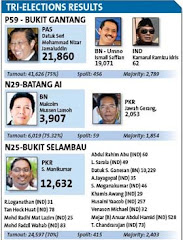




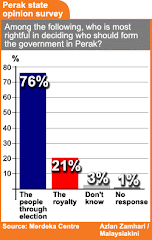


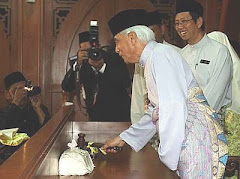
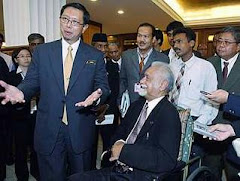






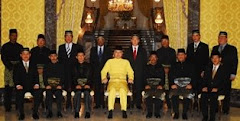




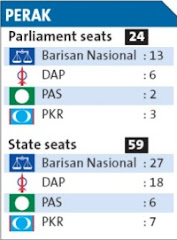

1 comment:
Of course OKC. You have never done that because you have never checked on the provision in the Road Transport Act as well as Local Government Act.
A lot of explanation from you is required now.
Post a Comment